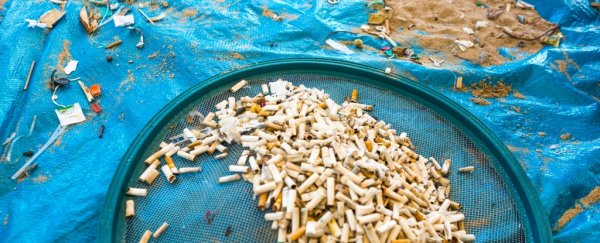Cigarette butts are among the most abundant types of human-produced garbage in the world's oceans.
Most of the roughly 5.5 trillion cigarettes manufactured globally every year contain a plastic-based filter, made of cellulose acetate, according to the Cigarette Butt Pollution Project.
Those filters can take decades to decompose after the cigarette butt has been discarded. As the plastics break down, the chemicals can be consumed by wildlife.
According to environmental researchers cited by NBC News, scientists have found traces of these chemicals in roughly 70 percent of seabirds and approximately 30 percent of sea turtles.
"More research is needed to determine exactly what happens to all of that," Nick Mallos, director of the Trash Free Seas campaign for the Ocean Conservancy, told NBC News.
"The final question is what impact these micro-plastics and other waste have on human health."
The conversation around the waste that accumulates in the ocean has gained new momentum as major companies and metropolitan areas seek new ways to address other types of nonbiodegradable garbage, like plastic straws.
This article was originally published by Business Insider.
More from Business Insider:
